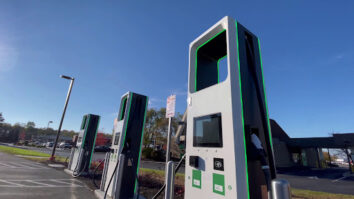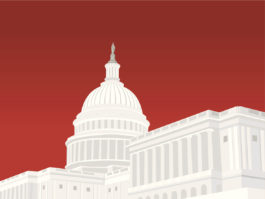Update as of May 1, 2020:
Stage 1 of the Governor’s plan to reopen the Maine economy commences today. Businesses in the Stage 1 sectors must download the general and industry-specific COVID-19 Prevention Checklists published by the Maine DECD. In addition, and in order to reopen, there is a required online form (found below the checklists) to fill out addressing your commitment to prevention protocol compliance. Upon completing the form, the DECD will put your business name on their website, allow your business to open, and issue your business a badge which you can affix to your door or an electronic copy to put on your website.
This article was originally published on April 30, 2020
On April 28th, Governor Janet Mills and her Administration issued an update on her plan to gradually and safely reopen Maine’s economy. At this time, the Stay at Home Order is still in effect, but Governor Mills has announced that she will issue a “Stay Safer at Home” Order on Thursday.
The Stay Safer at Home Order is set to stay in effect until May 31st, but, as with all timelines outlined in the plan to restart the Maine economy, that date is subject to change. Governor Mills will continue to coordinate with the Maine CDC and the Department of Economic and Community Development (DECD) to evaluate public health and safety throughout each stage of the plan, and push out the timeline, as needed.
Stage 1
With reports through the Maine CDC showing that Maine has been successful in mitigating the spread of coronavirus, the first of four stages of the plan is set to begin on May 1st. At this time, gatherings are still limited to 10 or fewer people.
As long as the plan’s outlined precautions are followed, Stage 1 allows the reopening of Maine-licensed health care providers, auto dealerships, car washes, barber shops, hair salons, pet groomers, limited in-vehicle religious services, and drive-in movie theaters. It also allows for guided outdoor activities, such as hunting & fishing, to resume and allows restricted use of golf and disc golf courses. Certain state parks (some coastal parks will not open at this time), state-owned public land trails, and historic sites will also be permitted to reopen. At this time, any workers able to continue to work from home are advised to do so.
In Preparation…
Additional guidance is forthcoming, but businesses should prepare for face mask requirements, restrictions on occupancy, additional safety training for employees, and physical space adjustments, such as plexiglass shields. There may be more complex modifications, such as adjustments to your sales process if, based on evidence-informed safety protocols, they are deemed necessary.
Businesses in these sectors should watch closely for the COVID-19 Prevention Checklists the DECD will publish on Wednesday, April 29th. Upon completing your checklist and providing your commitment to comply with the requirements, the DECD will put your business name on their website, allow your business to open, and issue your business a badge which you can affix to your door or an electronic copy to put on your website.
Stage 2
The second stage tentatively begins on June 1st and, again, as long as certain precautions are followed, the limitation for 10 or less at gatherings will increase to 50 or less. This allows for limited reopenings for restaurants, gyms, nail salons, retail stores, lodging and campgrounds, day camps, and coastal state parks. Although some restrictions will be lifted for certain fields, any workers able to continue to work from home are still advised to do so
In Preparation…
In addition to the preparations mentioned in Stage 1, businesses in these sectors should prepare to keep precautions for elderly and high-risk individuals in place.
Stage 3
The third stage tentatively begins on July 1st, and aims to allow for limited reopenings for lodging, such as hotels, additional campgrounds, summer camps, and RV parks, as well as for charter boats and boat excursions. Additionally, bars, and personal services, such as spas, tattoo parlors, and massage facilities, are set for limited reopening in Stage 3.
In Preparation…
In addition to the preparations mentioned in the previous stages, businesses in these sectors should note that the Administration does warn that additional guidelines are needed for safety, and the timeline is tentative; therefore, businesses should not take reservations at this time.
Stage 4
The timeframe has not been set for Stage 4, as so much of the plan depends on the success of the previous stages. The goal is to lift restrictions, while keeping the appropriate safety precautions in place, allowing all businesses and activities to resume. The DECD, the Maine CDC, and the Governor’s office will collectively determine when Stage 4 operations may safely commence.
Preparing for the New Norm
Regardless of the stage your business falls under, the time for an economic recovery plan is now. Your plan should include analysis of cash flow, including projections, forecasting for deficits, managing shortfalls, assessing liquidity needs, and determining your ability and need to borrow. ARB has designed a tool for public use that specifically targets the liquidity needs of small businesses. Download the spreadsheet below to start your economic recovery plan.
Download 13-Week Cash Flow Analysis
Contact ARB
At ARB, it’s our goal to keep our clients equipped with the best financial and tax resources, services, and guidance. We’re here to help our clients through every stage of financial need, which includes times of business growth and times of economic uncertainty. Please contact us if you have any questions, or visit our COVID-19 Financial Resource and Tax Center for additional information on related matters.





